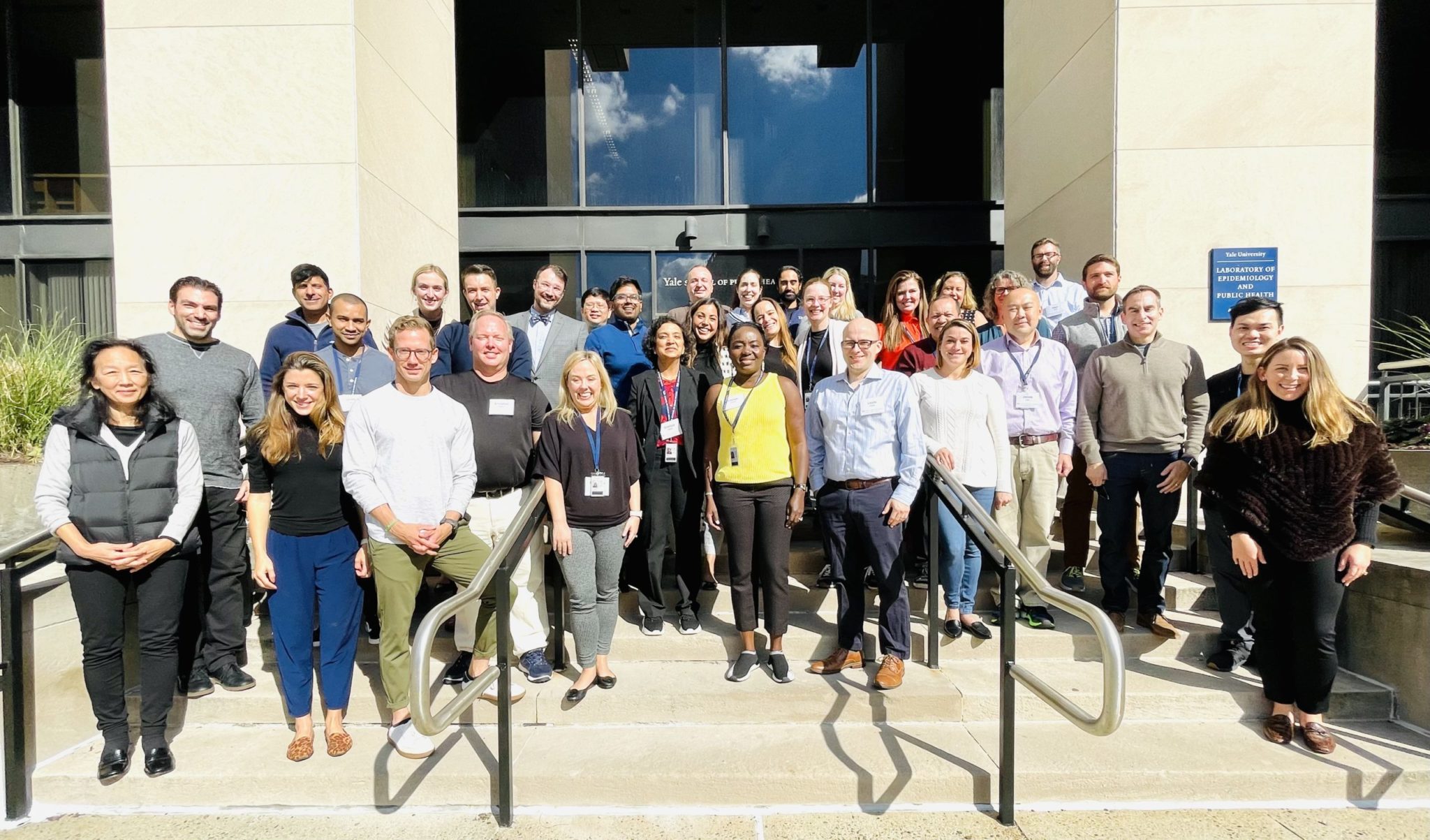School of Public Health welcomes inaugural class for online executive MPH program
New online executive MPH program bridges professionals across different fields to explore public health’s applications.

Courtesy of Heather Daly
The Yale School of Public Health recently welcomed the inaugural class of its new online executive Master of Public Health program.
The online executive Master of Public Health program is a two-year degree program created by Martin Klein SPH ’86, executive MPH director and senior advisor to the dean of the Yale School of Public Health, and his colleagues at the SPH and the Poorvu Center for Teaching and Learning. Through a combination of synchronous and asynchronous classes, as well as some in-person intensives, the program aims to provide its students with the knowledge and skills they need in order to become leaders in the field of public health. The program’s purpose is to provide opportunities to individuals already established in professional fields to expand their public health knowledge without disrupting their career trajectory.
“What we have seen in public health, certainly during the pandemic, is that public health needs more and more well-trained, articulate and committed leaders, and we think this is a program that will help public health in getting the leaders that it needs to move forward further into the 21st century,” Klein said.
The program was designed with several components in mind, including leadership and management training, as well as a capstone that allows students to bridge the gap between skills acquired in the first year of the program and the second year’s course material. Combined with an emphasis on the core subjects of public health, the program also offers four tracks –– health informatics, environmental health sciences, applied analytical methods and epidemiology and critical topics in public health –– that students can choose to specialize in.
The current cohort is made up of 38 students from a variety of disciplines. According to Marney White MED ’05, SPH ’09, professor of public health at the School of Public Health and the director of the critical topics in public health track, the range of backgrounds enriches class discussions.
“In this case, we’re talking about advanced experiences that include an established career in a different scientific field, and people are bringing in these experiences and relating them to what we’re talking about in class,” White said. “We’re bringing in all kinds of things I didn’t know about. It’s awesome.”
Michael Wininger, the instructor of ‘Biostatistics and Public Health,’ a core class in the executive MPH program, expressed a similar sentiment to White regarding the classroom environment in the program.
“The dynamic of the executive MPH class is really different from the dynamic you get in a conventional education setting,” Wininger said. “It is because all of these students are my peers. These students are looking at my class through their lenses which are tinted with the real world. It is like a reverse paradigm.”
According to Wininger, while conventional students may be two to three years from being able to apply material learned in a classroom to the real world, students enrolled in the executive program are actively implementing new knowledge in their professional careers.
For example, Kylie Tanabe SPH ’23, a physician’s assistant, is utilizing the knowledge she gained from Wininger’s course to write a paper on a surgical technique that is currently being tested at the hand surgery clinic where she works. Edwige Djassa SPH ’23, a board-certified family nurse practitioner at the Phoenix Indian Medical Center and lieutenant commander commissioned corps officer of the U.S. Public Health Service, hopes to use her knowledge from the course in the context of global health.
“I have seen that regardless of where you find yourself, regardless of the language, regardless of the culture, poverty is still poverty, and poverty in the United States is the same poverty everywhere else,” Djassa said. “I wanted to not just focus on individual patients but also be able after this program to expand my wings a little bit more and focus more on global health program management.”
Becca Melnick, associate director of admissions at the Yale School of Public Health, reflected on her experience meeting the cohort at their first on-site intensive, which occurred a few weeks ago. This in-person intensive was one of three that will take place during the first year of the program, focusing on leadership and management training in a collaborative environment.
“Their passion and excitement about the program far exceeded my expectations,” Melnick said. “Based on what I saw of their experience on-site, you would never have known that this was the first time the group met in person.”
Lisa Carter SPH ’23 another member of the inaugural cohort and director for the tobacco cessation research program at Memorial Sloan Kettering Cancer Center, similarly values the community aspect of the program.
“I never thought that 37 other people would become so much like family,” Carter said. “We really kind of all hit it off. We have our own little WhatsApp group that we reach out to. Everybody is so incredibly supportive.”
According to Klein, the School of Public Health hopes to grow the cohort to 60 students, and eventually beyond that, in order to provide the educational experience to an increased number of professional students.
The application portal for admission to the class entering in the summer of 2022 will open on Aug. 18.







